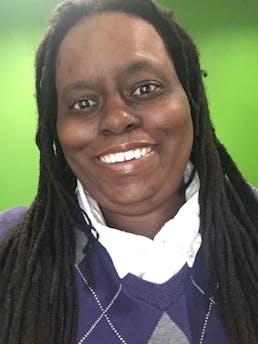Helen Griffin - Multi-passionate in tech
Season 5, Episode 3 | April 7, 2022In today's episode, Dan and Bekah talk to Helen Griffin about what she’s learned from her journey going from tech to founder and back to tech again.

Helen Griffin
Helen started her career as a web developer. Now, as a full-stack dev & founder, she enjoys helping developers build products & a life they love. Today, she spends her time building developer tools, like State of Developers & Jovial. Helen is on a campaign to help her peers recover from burnout.
- HelenJr.dev
- helengriffinjr on GitHub
- @helengriffinjr on Twitter
- @hgriffinjr on LinkedIn
Show Notes:
This week Bekah and Dan sat down with Helen Griffin, a full-stack developer and founder, about how the tech industry changed during the time she was a founder, how what she’s learned as a founder has helped her to have a broader perspective about the tech industry, and what she’s doing with her companies Jovial and State of Developers to support developers in their career journeys.
Links
Sponsor Virtual Coffee!
Your support is incredibly valuable to us. Direct financial support will help us to continue serving the Virtual Coffee community.
Please visit our sponsorship page on GitHub for more information - you can even sponsor an episode of the podcast!
Virtual Coffee:
- Virtual Coffee: virtualcoffee.io
- Podcast Contact: podcast@virtualcoffee.io
- Bekah: dev.to/bekahhw, Twitter: https://twitter.com/bekahhw, Instagram: bekahhw
- Dan: dtott.com, Twitter: @danieltott
The Virtual Coffee Podcast is produced by Dan Ott and Bekah Hawrot Weigel and edited by Dan Ott.